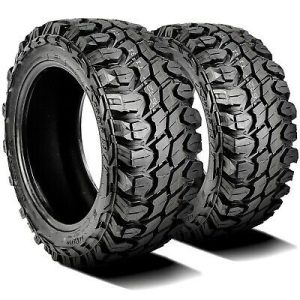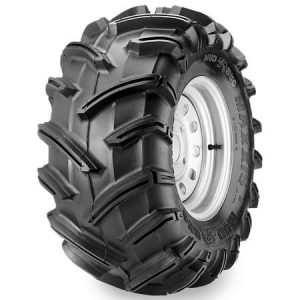When it comes to tires, understanding the ply rating is crucial for choosing the right option for your vehicle and driving needs. 12 ply tires, also known as 12-ply rated tires, represent a specific construction with enhanced durability and load capacity. This article delves into the world of tires, exploring their benefits, applications, and factors to consider when making a purchase.
Whether you’re a heavy-duty truck driver, an off-road enthusiast, or someone who frequently hauls trailers, understanding tires can empower you to make informed decisions for your vehicle.
Demystifying Ply Rating: Layers of Strength in Tire Construction
The ply rating in a tire refers to the number of rubber layers within the tire sidewall. These layers, often composed of rubber-coated cords, provide structural integrity and influence the tire’s load-bearing capacity. Higher ply ratings indicate a more robust construction with increased strength and weight handling capabilities.

Here’s a breakdown of ply ratings in general:
-
Standard Passenger Car Tires: Typically have a ply rating of 2 or 4, designed for everyday driving and offering a balance between comfort and performance.
-
Light Truck Tires: Often have a ply rating of 6 or 8, providing increased load capacity for hauling light cargo or towing small trailers.
-
Heavy-Duty Truck Tires: These tires, including tires, feature a higher ply rating to handle the significant weight of heavy-duty trucks and trailers.
It’s important to remember that ply rating isn’t the sole factor determining tire strength. Modern tire construction methods utilize advanced materials and engineering techniques to create strong and durable tires, even with lower ply ratings.
The Advantages of 12 Ply Tires: Built to Endure Tough Conditions
So, what makes tires stand out? Here are some key benefits to consider:
-
Enhanced Load Capacity: The increased number of plies translates to a higher weight limit. 12 ply tires can handle heavier loads compared to standard passenger car tires or even light truck tires. This makes them ideal for heavy-duty trucks transporting significant cargo or towing large trailers.
-
Improved Puncture Resistance: The thicker sidewalls of tires offer superior resistance to punctures and blowouts. This is particularly advantageous when driving on rough or uneven terrain where the risk of encountering sharp objects is higher.
-
Greater Durability: The robust construction of 12 ply tires translates to a longer lifespan. They are more resistant to wear and tear, especially when used under demanding conditions with heavy loads.
-
Enhanced Stability: The increased sidewall strength in 12 ply tires contributes to better vehicle stability, particularly when carrying heavy loads or towing trailers. This translates to improved handling and control.
Applications for 12 Ply Tires: Where Strength Reigns Supreme
12 ply tires aren’t meant for every vehicle or driving situation. Here are some common applications where their strengths truly shine:

-
Heavy-Duty Trucks: Trucks designed for hauling significant cargo, such as construction vehicles, logging trucks, and long-haul carriers, benefit greatly from the increased load capacity and durability offered by tires.
-
Towing and Hauling: If you frequently tow trailers or haul heavy equipment, tires provide the necessary strength and puncture resistance to ensure safe and reliable performance.
-
Off-Road Adventures: For off-road enthusiasts venturing onto rough terrain, tires offer superior puncture resistance and durability to withstand challenging conditions.
-
Commercial Vehicles: Delivery trucks, buses, and other commercial vehicles that carry significant weight or operate in demanding environments can benefit from the enhanced load capacity and stability offered by 12 ply tires.
Choosing the Right Tires: Factors to Consider Before You Buy
While 12 ply tires offer undeniable advantages, it’s crucial to choose the right ones for your specific needs. Here are some key factors to consider:

-
Vehicle Requirements: Consult your vehicle’s owner’s manual for the recommended tire size and ply rating. Using tires that deviate from the manufacturer’s specifications can compromise safety and handling.
-
Load Capacity: Consider the weight you’ll be carrying or towing regularly. Choose tires with a load capacity exceeding your typical load requirements for added safety.
-
Driving Conditions: If you primarily drive on paved roads, a less aggressive tread pattern might suffice. However, for off-road adventures, a more aggressive tread design suited for rough terrain is essential.
-
Speed Rating: 12 ply tires often have lower speed ratings compared to passenger car tires. Ensure the chosen tires are appropriate for your typical driving speeds and avoid exceeding the speed rating for safety reasons.
- Brand and Reputation: Research different tire brands and their reputation for quality and durability. Consider user reviews and recommendations when making your choice.
Maintaining Your Tires: Optimizing Performance and Lifespan
Getting the most out of your tires requires proper maintenance. Here are some key practices to follow:
-
Regular Air Pressure Checks: Maintain the recommended air pressure as specified in your vehicle’s owner’s manual or on the tire placard. Underinflation can lead to premature wear and tire failure.
-
Tire Rotation: Regular tire rotation helps ensure even wear and tear across all tires. Consult your owner’s manual for the recommended rotation schedule.
-
Alignment and Balancing: Proper wheel alignment and balancing are crucial for optimal tire performance and lifespan. Uneven wear or vibrations can indicate the need for alignment or balancing.
-
Visual Inspection: Regularly inspect your tires for signs of damage, such as cuts, bulges, or tread wear. Early detection of potential issues can prevent tire failure and accidents.
-
Load Management: Avoid overloading your vehicle beyond the weight capacity of the 12 ply tires. This can lead to excessive wear and tear and potential tire failure.
Where to Buy 12 Ply Tires: Finding the Perfect Fit for Your Vehicle
With the growing popularity of trucks, trailers, and off-road vehicles, there are numerous options for purchasing 12 ply tires. Here are some popular retailers to explore:

-
Tire Dealers: Specialty tire dealers offer a wide selection of tires from various brands. They can also provide expert advice on choosing the right tires for your vehicle and needs.
-
Online Retailers: Several online retailers offer a vast selection of 12 ply tires at competitive prices. Be sure to choose reputable retailers and carefully review product specifications and size charts before making a purchase.
-
Truck Stops: Many truck stops stock a variety of heavy-duty tires, including 12 ply options. This can be a convenient option for truck drivers on the go.
Invest in Strength and Performance: Tires for Demanding Applications
By understanding the benefits and applications of tires, you can make an informed decision for your vehicle. Whether you’re a professional driver navigating demanding job sites or an adventurer seeking to conquer challenging off-road terrains, tires offer the strength, durability, and performance you need.
Remember, safety should always be your top priority. Choose tires that meet your vehicle’s specifications and load requirements, and maintain them properly to ensure optimal performance and a long lifespan.
